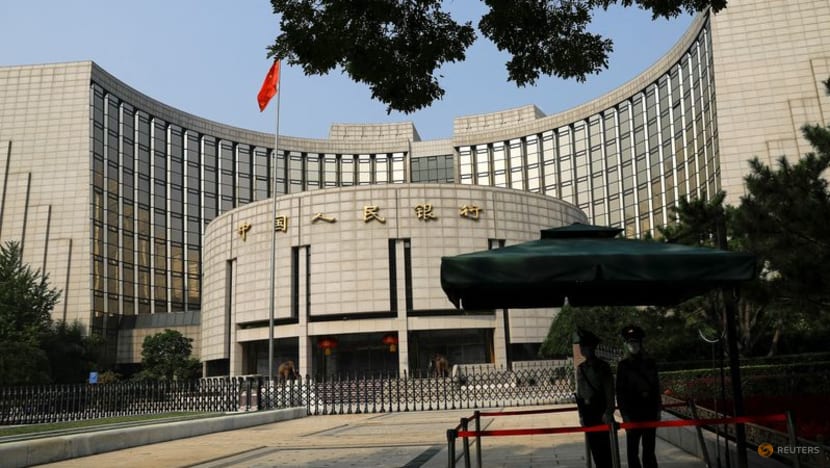China has more space to cut reserve ratio instead of interest rates, says ex-official

FILE PHOTO: Paramilitary police officers stand guard in front of the headquarters of the People's Bank of China, the central bank (PBOC), in Beijing, China September 30, 2022. REUTERS/Tingshu Wang/File Photo
This audio is AI-generated.
BEIJING: China is likely to implement proactive fiscal policy next year as there is still a need for the world's second-biggest economy to realise stable growth, a former central banker was cited as saying in state-owned media on Sunday (Dec 3).
The comment comes as the economy struggles for momentum after being hobbled by lengthy pandemic-busting measures, while market watchers fear severe debt woe among major property developers could spill over to other sectors.
"It is expected that next year China will continue to implement positive fiscal policy, monetary policies that are in line with positive fiscal policy, with a relatively large policy space to lower the reserve requirement ratio," Sheng Songcheng, a former statistics and analysis director of the People's Bank of China, said in comments reported by Shanghai Securities News.
With interest rates and loan prime rates at low levels, there is more space to cut banks' reserve requirement ratio (RRR) than to cut interest rates, Sheng said.
The central bank lowered the RRR in September for the second time this year to boost liquidity and support economic recovery. Analysts expect another cut by year-end.
The weighted average RRR for financial institutions was around 7.4 per cent after the cut.
China is prudent in cutting interest rates as its monetary policy needs to consider internal and external balance, Sheng said.
"It is expected that the interest rate differential between China and the U.S. will enter a period of stabilisation, so the renminbi (yuan) is likely to maintain a mild appreciation trend, but the appreciation is limited."


